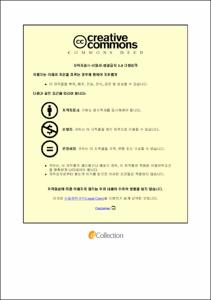초등학생이 지각한 부모양육태도, 자기조절능력, 정서지능, 대인관계역량의 구조적 관계
- Alternative Title
- The Structural Relationship of Parents’ Rearing Attitudes, Self-control, Emotional Intelligence, Interpersonal Competence by Elementary School Student
- Abstract
- The purpose of this study was to investigate the structural relationship between parenting style, self-control, emotional intelligence, and interpersonal competence that are perceived by elementary school students. In addition, the study was focused on verifying mediated factors of education, self control, and emotional intelligence based on the child’s parenting style, which will help improve elementary school student’s social life. The research subjects were 676 students in 5th and 6th grade who live in Busan, and the data verified the structural model and its correlation analysis based on their study models. In parenting style, the result shows that the female students(3.39) perceive more positively of their parenting style than the male students(3.32). Not only their sex, the result shows that there was a difference in between the child’s birth order when it comes to parenting style. In self control and emotional intelligence, there was not much difference in sex, and there was no difference in birth order when the data was the variables of parenting style, self control, and interpersonal competence. However, there was a difference in birth order when it comes to emotional thought acceleration. The posteriori tests show that the first child or the only child has a better emotional thought acceleration than the second child or more. Furthermore, the parenting styles that the students perceived had a positive correlation in each variables of self control, emotional intelligence, and interpersonal relationship. The result also shows that the emotional intelligence affected interpersonal relationship, but self control had no effect.
To sum it up, in order to improve the child’s interpersonal relationship, there should be some positive input to facilitate the child’s emotional intelligence but also, school should provide a counseling and education to achieve that.
- Issued Date
- 2019
- Awarded Date
- 2019. 8
- Type
- Dissertation
- Publisher
- 부경대학교
- Affiliation
- 부경대학교 대학원
- Department
- 대학원 수해양인적자원개발학과
- Advisor
- 원효헌
- Table Of Contents
- Ⅰ. 서 론 1
1. 연구의 필요성 및 목적 1
2. 연구 문제 7
3. 용어의 정의 8
Ⅱ. 이론적 배경 10
1. 부모 양육태도 10
2. 자기조절능력 23
3. 정서지능 32
4. 대인관계역량 39
5. 부모의 양육태도, 자기조절능력, 정서지능, 대인관계역량 선행연구 고찰 45
Ⅲ. 연구 방법 52
1. 연구모형 52
2. 연구대상 52
3. 측정도구 54
4. 연구절차 59
5. 자료분석 61
Ⅳ. 연구 결과 62
1. 성별과 출생순위에 따라 부모의 양육태도와 자기조절능력, 정서지능, 대인관계역량의 차이 62
2. 초등학생이 지각한 부모의 양육태도가 자기조절능력, 정서지능, 대인관계역량에 미치는 직접적인 영향 67
3. 자기조절능력과 정서지능이 대인관계역량에 미치는 직접적인 영향 71
4. 자기조절능력, 정서지능을 매개로 대인관계역량에 미치는 간접적인 영향 76
Ⅴ. 논의 및 결론 85
1. 논의 85
2. 결론 및 제언 95
참고문헌 98
부 록 123
- Degree
- Doctor
- Appears in Collections:
- 대학원 > 수해양인적자원개발학과
- Files in This Item:
-
-
Download
 초등학생이 지각한 부모양육태도, 자기조절능력, 정서지능, 대인관계역량의 구조적 관계.pdf
기타 데이터 / 1.2 MB / Adobe PDF
초등학생이 지각한 부모양육태도, 자기조절능력, 정서지능, 대인관계역량의 구조적 관계.pdf
기타 데이터 / 1.2 MB / Adobe PDF
-
Items in Repository are protected by copyright, with all rights reserved, unless otherwise indicated.